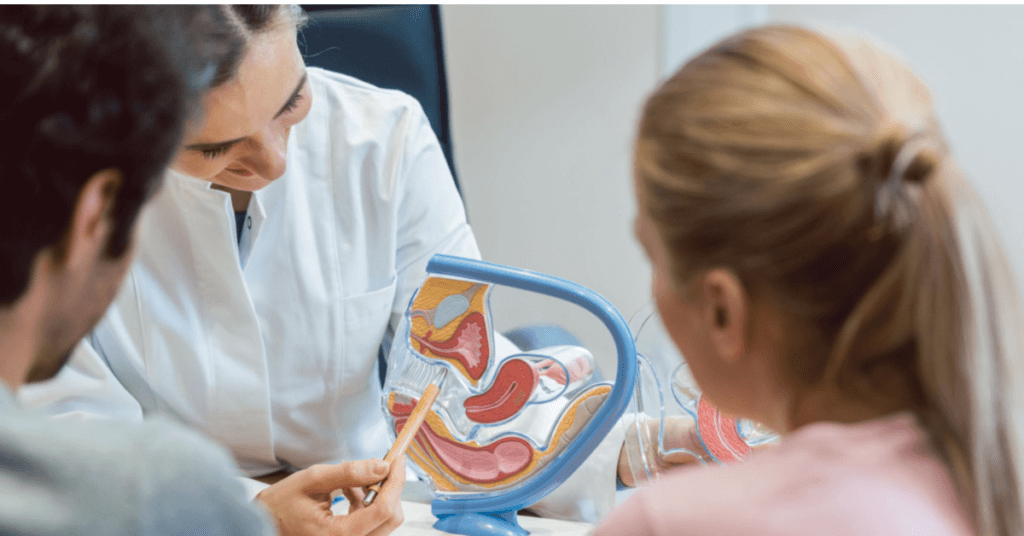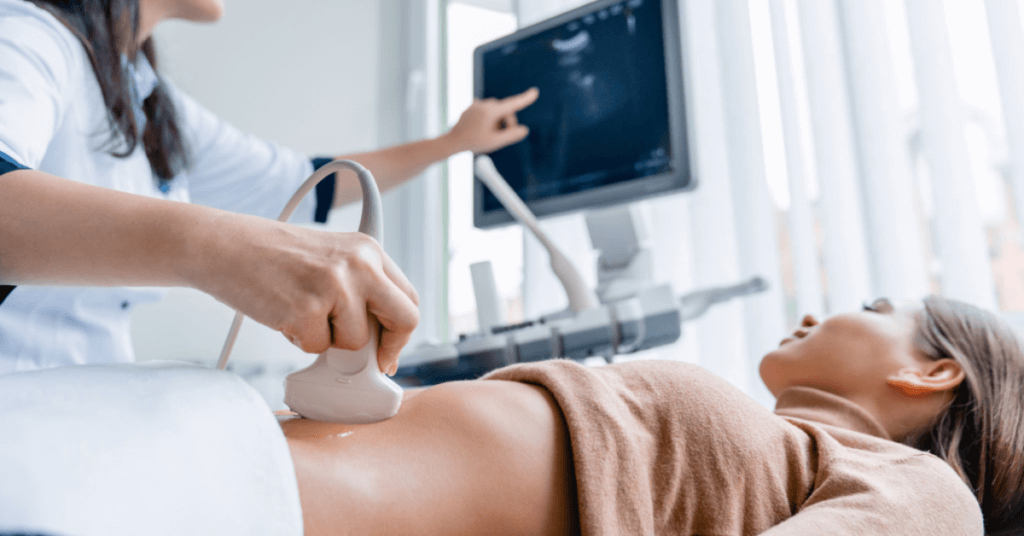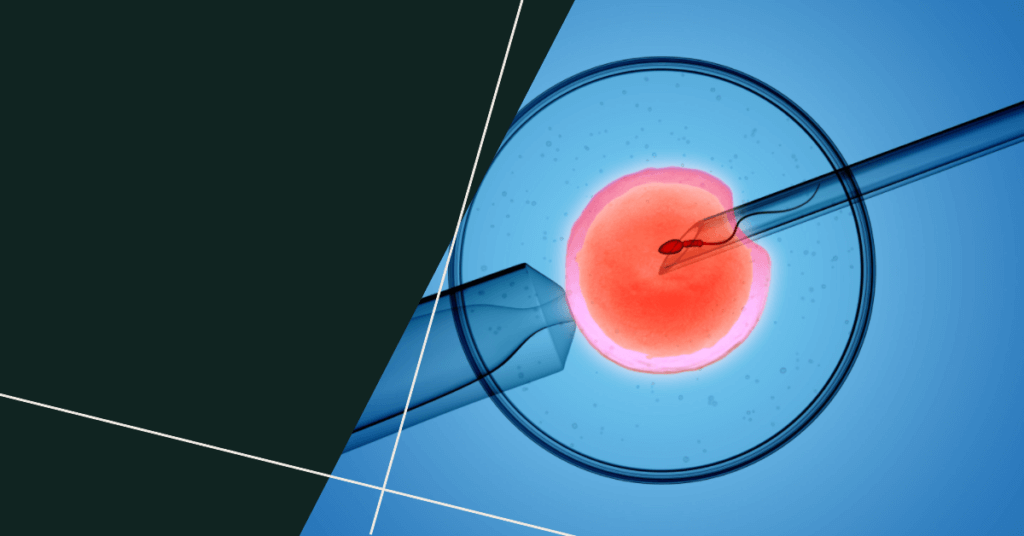
Diminished ovarian reserve is a condition that affects many women and can significantly impact their reproductive potential. Ovarian reserve refers to the number of eggs a woman has in her ovary at any given time, and low ovarian reserve or DOR occurs when this number is reduced. This reduction can lead to lower pregnancy rates, and some women may require the use of donor sperm to conceive.
One common indicator of low ovarian reserve is low AMH levels. AMH, or anti-mullerian hormone, is produced by the cells in a woman’s developing follicles and can be measured through a blood test. Low AMH levels are often associated with low ovarian reserves, which can affect reproductive potential and reduce the chances of producing many eggs. In some cases, women with low ovarian reserves may need to consider using donor sperm to conceive.
Age, LH levels, and the average number of eggs a female has can also impact ovarian reserves. As women age, their egg supply decreases naturally. High LH levels may indicate that the body is trying to compensate for lower egg reserves by producing more follicle-stimulating hormone (FSH). Estradiol levels also play a crucial role in determining pregnancy rates as it helps in thickening the uterus lining to prepare for implantation of fertilized eggs by sperm.
Symptoms of low ovarian reserve in females include irregular periods or missed periods, difficulty conceiving, miscarriage, and early menopause. Women with DOR may also experience hot flashes or night sweats due to hormonal changes caused by the depletion of many eggs or egg cells. Some studies suggest that taking DHEA supplements may help improve ovarian reserve.
If you suspect that as a female, you have low ovarian reserves or are experiencing symptoms of DOR, such as reduced egg cells, it’s important to speak with your healthcare provider. They can perform tests to determine your AMH levels and assess your overall fertility health, including checking your dhea levels. This is especially important for men who are trying to conceive with their partners.
Signs and Symptoms of Low Ovarian Reserve
Irregular Menstrual Cycles
One of the most noticeable symptoms of low ovarian reserve in a female person is irregular menstrual cycles. This means that a woman’s period may come earlier or later than usual, and the flow may be heavier or lighter than normal. Some women may even experience missed periods altogether. Irregular cycles can make it difficult to predict ovulation, which can make it harder to conceive, especially for those with diminished ovarian reserve (DOR). DHEA (Dehydroepiandrosterone) supplements may be recommended for those with DOR to improve their chances of conception.
Difficulty Getting Pregnant
Another sign of low ovarian reserve is difficulty getting pregnant, which can be concerning for a person trying to conceive. Women with this condition may have trouble conceiving naturally, and they may also be less responsive to fertility treatments such as in vitro fertilization (IVF). This is because low ovarian reserve means that there are fewer eggs available for fertilization, which can make it more challenging to achieve pregnancy. It is important for individuals experiencing infertility to seek guidance from a healthcare provider or a doctor (also known as a “dor”) to explore their options.
Decreased Sex Drive
Low ovarian reserve can also lead to a decreased sex drive in a person. This is because the body produces less estrogen when there are fewer eggs in the ovaries, which can be identified by a provider through tests such as AMH or FSH. Estrogen plays a crucial role in sexual desire, so when levels drop, women may experience a lack of interest in sex, as confirmed by a reproductive endocrinologist or “dor.
Hot Flashes and Night Sweats
Hot flashes and night sweats are common symptoms of menopause, but they can also be signs of low ovarian reserve. These symptoms occur due to hormonal changes in the body, which cause sudden feelings of heat and sweating. Women with low ovarian reserve may experience these symptoms at an earlier age than usual. However, it is important to note that not all women with low ovarian reserve will experience dor.
Vaginal Dryness
Low estrogen levels, which can be caused by diminished ovarian reserve or a decrease in egg reserve, can lead to vaginal dryness. Estrogen helps keep the vaginal tissues moist and healthy, but when levels drop, the tissues become drier and thinner, making them more prone to irritation. Women undergoing ovarian superovulation or ovarian reserve testing may also experience changes in estrogen levels, which could affect their vaginal health.

Causes of Low Ovarian Reserve
Ovarian reserve refers to the number and quality of eggs a woman has in her ovaries. Low ovarian reserve means that a woman has fewer eggs than expected for her age, which can make it more difficult to conceive naturally or through assisted reproductive technologies. Women with diminished ovarian reserve (DOR) may experience difficulty in getting pregnant and may require additional fertility treatments. In this section, we will discuss some of the common causes of low ovarian reserve.
Ovarian aging is the most common cause of low ovarian reserve. As women age, their ovaries produce fewer and lower-quality eggs. This decline in egg quantity and quality typically begins in a woman’s mid-30s and accelerates after age 40. While there is no way to stop or reverse ovarian aging, certain lifestyle changes may help slow down the process.
Genetic abnormalities can also be a factor in low ovarian reserve. Some women are born with genetic mutations that affect their egg production or quality. For example, Turner syndrome is a condition that affects about 1 in 2,500 females and is caused by missing or partially missing X chromosomes. Women with Turner syndrome often have low ovarian reserve and may require fertility treatments to conceive.
In some cases, there may be no apparent cause for low ovarian reserve. This is known as idiopathic diminished ovarian reserve (DOR). While researchers are still trying to understand what causes idiopathic DOR, it is thought to be related to an autoimmune response or other factors that affect egg development.
Ovarian failure can also lead to low ovarian reserve. Ovarian failure occurs when the ovaries stop working before age 40 due to chemotherapy or radiation therapy for cancer treatment, surgery to remove the ovaries, or certain autoimmune diseases such as lupus.
Lifestyle factors such as smoking and exposure to environmental toxins can also contribute to low ovarian reserve. Smoking has been shown to accelerate the decline in egg quantity and quality, while exposure to chemicals such as pesticides and solvents may damage developing eggs.
Diagnosis and Tests for Low Ovarian Reserve
Ovarian reserve testing is the primary diagnostic tool used to determine low ovarian reserve. This type of testing can be done through blood tests or ultrasound. Blood tests measure hormone levels, specifically follicle-stimulating hormone (FSH) and anti-Mullerian hormone (AMH). High levels of FSH and low levels of AMH may indicate a decrease in ovarian reserve. Ultrasound is used to count the number of follicles present in the ovaries, which can also give insight into ovarian reserve.
Diagnostic testing for low ovarian reserve is recommended for women over the age of 35 or those with a family history of premature menopause. Early diagnosis is crucial for women who want to conceive because it allows for more time to explore fertility treatment options. If you are experiencing irregular periods, have had multiple miscarriages, or have been trying to conceive without success for over six months, it may be time to consider getting tested.
It’s important to remember that a diagnosis of low ovarian reserve can be emotionally challenging. However, there are still options available for women who want to conceive. For example, fertility treatments such as in vitro fertilization (IVF) or intrauterine insemination (IUI) may help increase the chances of pregnancy. In some cases, donor eggs may also be an option.

Management and Treatment Options for Low Ovarian Reserve
Treatment Options for Low Ovarian Reserve
Medical treatments and lifestyle changes are the two main options available for managing low ovarian reserve. While lifestyle changes can help improve overall health, medical treatments can directly address the issue of low ovarian reserve. Here are some treatment options to consider:
Hormone Therapy
One option for treating low ovarian reserve is hormone therapy. Hormones play a crucial role in regulating the menstrual cycle and ovulation. Hormone therapy involves taking medications to stimulate the ovaries and increase the chances of ovulation. The most commonly used hormones in this type of therapy are follicle-stimulating hormone (FSH) and luteinizing hormone (LH). These hormones work together to promote follicle growth and ovulation.
This article might also be interesting for you: Unexplained Infertility Diagnosis and Treatment Options
Fertility Drugs
Fertility drugs, such as clomiphene citrate and gonadotropins, can stimulate ovulation and improve the chances of pregnancy by increasing FSH and LH levels. Additionally, ovarian superovulation can be achieved through these drugs to increase the number of eggs released during ovulation. Women with concerns about their egg reserve can also undergo ovarian reserve testing to determine if they have a diminished ovarian reserve. In such cases, fertility drugs may be prescribed to help increase the chances of conception.
In Vitro Fertilization (IVF)
For women with severe cases of low ovarian reserve, IVF may be recommended. This is a more invasive option that involves retrieving eggs from the ovaries and fertilizing them in a lab before implanting them in the uterus. IVF has been successful for many couples struggling with infertility due to low ovarian reserve.
Other Treatment Options
There are other less common treatment options available for women with low ovarian reserve, including donor eggs or embryos, surrogacy, or adoption. These options may be considered if medical treatments are not successful or not an option.
It’s important to note that there is no cure for low ovarian reserve; however, these treatment options can help manage symptoms and increase the chances of pregnancy. It’s essential to discuss all treatment options with a healthcare provider to determine the best course of action for individual needs.

IVF as a Treatment Option for Low Ovarian Reserve
IVF, or in vitro fertilization, is a common treatment option for women with low ovarian reserve. This condition occurs when the number of eggs in a woman’s ovaries is lower than normal, which can make it difficult to conceive naturally. IVF involves using fertility drugs to stimulate the ovaries to produce more eggs, which are then harvested and fertilized outside of the body.
During IVF, ovarian reserve testing is used to assess the quantity and quality of a woman’s eggs. This is important because women with diminished ovarian reserve may have a harder time producing mature eggs for fertilization. Transvaginal ultrasound is then used to monitor the growth and development of the eggs. This allows doctors to track their progress and ensure that they are developing properly. Once the eggs have reached maturity, they are harvested using a minimally invasive procedure.
In July 2020, a study published in the Journal of Assisted Reproduction and Genetics found that women with low ovarian reserve who underwent IVF had a higher chance of pregnancy compared to those who did not undergo treatment. The study analyzed data from over 1,000 women with low ovarian reserve who underwent IVF between 2012 and 2017. The results showed that nearly 40% of these women achieved pregnancy through IVF.
This article might also be interesting for you: Signs of bad egg quality
While IVF can be an effective treatment option for low ovarian reserve, it can also be expensive and may require multiple cycles for success. According to the American Society for Reproductive Medicine (ASRM), the average cost per cycle of IVF in the United States is around $12,000-$15,000. Some insurance companies do not cover the cost of fertility treatments like IVF.
It is important for women with low ovarian reserve to discuss their options with a fertility specialist. These specialists can provide guidance on which treatments may be most effective based on each individual’s unique situation. In addition to IVF, other treatment options for low ovarian reserve include intrauterine insemination (IUI), donor eggs or embryos, and adoption.
Using Donor Eggs for Fertility Treatment
Donor Eggs: A Viable Option for Fertility Treatment
Donor eggs are a viable option for women with low ovarian reserve who want to conceive. Fertility treatment using donor eggs involves fertilizing the donated egg cells with donor sperm and transferring the resulting embryo to the uterus. Assisted reproductive technologies such as in vitro fertilization (IVF) and intracytoplasmic sperm injection (ICSI) can be used with donor eggs to increase the chances of pregnancy.
Many women with diminished ovarian reserve experience infertility due to low egg supply or poor egg quality, which can make it difficult or impossible to conceive naturally. Donor eggs offer a higher chance of success compared to using a woman’s own eggs with low egg supply or poor egg quality. The number of eggs retrieved from a donor can vary, but typically, many eggs are collected through follicle stimulation to increase the chances of success.
Egg freezing is an option for women who want to preserve their egg supply before undergoing cancer treatment or other medical procedures that may affect fertility. This process involves stimulating the ovaries to produce multiple mature eggs, which are then extracted and frozen for later use. This allows women to have more control over their reproductive health and future family planning options.
Using donor eggs also offers benefits such as reducing the risk of genetic disorders that may be present in one’s own family history, especially for those with diminished ovarian reserve. Choosing a donor allows couples or individuals to select characteristics they desire in their child such as physical appearance, intelligence, and personality traits.

Lifestyle Changes to Improve Fertility with Low Ovarian Reserve
Fertility preservation techniques can help women with low ovarian reserve to improve their chances of conception. For women who have been diagnosed with low ovarian reserve, it is important to understand that there are still options available for conceiving a child. One such option is fertility preservation, which involves freezing eggs or embryos for use at a later time. This technique allows women to preserve their fertility potential and increase their chances of successful conception in the future.
Lifestyle factors such as maintaining a healthy weight, avoiding smoking and excessive alcohol consumption, and reducing stress can positively impact fertility potential. Women who are trying to conceive should focus on leading a healthy lifestyle by exercising regularly, eating a balanced diet, and getting enough sleep. Smoking and excessive alcohol consumption can negatively impact fertility potential. Additionally, women with diminished ovarian reserve should pay extra attention to these lifestyle factors.
High FSH levels can indicate low ovarian reserve, but pregnancy rates are still possible with proper treatment and management. Women who have been diagnosed with high FSH levels should work closely with their healthcare provider to develop an appropriate treatment plan. Treatment options may include medications or assisted reproductive technologies (ART), such as in vitro fertilization (IVF).
Supplements such as DHEA may improve reproductive potential in some women with low ovarian reserve but should only be taken under the guidance of a healthcare professional. While supplements like DHEA may be helpful for some women struggling with infertility due to low ovarian reserve, it is important to remember that they should only be taken under the guidance of a healthcare professional.
Normal aging can affect the number of ovarian follicles and overall fertility but lifestyle changes can help mitigate these effects. As women age, their natural fertility potential declines due to changes in hormone levels and the number of available ovarian follicles. However, leading a healthy lifestyle by exercising regularly, eating well-balanced meals rich in nutrients necessary for reproduction like folate-rich foods like green leafy vegetables or taking prenatal vitamins containing folic acid will help mitigate these effects.
Regular monitoring of menstrual cycle and FSH levels can help women with low ovarian reserve to optimize their chances of pregnancy. Women who are trying to conceive should work closely with their healthcare provider to monitor their menstrual cycle and hormone levels. This will help them identify the most fertile days of their menstrual cycle and make any necessary adjustments to their treatment plan.
This article might also be interesting for you: Fertility Cleanse to Boost your chances
Coping with the Emotional Impact of Low Ovarian Reserve
Low ovarian reserve is a condition that affects women in their 40s who are trying to conceive. It occurs when the ovaries have a low egg count and decreased estradiol levels. This can be caused by menopause, injury, disease, or natural decline. Hormones produced by the pituitary gland play a crucial role in the maturation process of eggs in the ovary.
Emotional Distress
Women with low ovarian reserve may experience feelings of sadness, frustration, and anxiety. The inability to conceive can lead to depression and stress which can negatively impact mental health and relationships. Coping with these emotions is an important part of managing low ovarian reserve.
AMH Levels
Anti-Mullerian hormone (AMH) levels can help predict a woman’s ovarian reserve count and guide fertility treatment options. A high AMH level indicates good ovarian reserve while a low AMH level suggests low ovarian reserve. Based on this test result, doctors can recommend assisted reproductive techniques such as IVF or ICSI.
Treatment Options
There are various treatment options available for women with low ovarian reserve such as fertility drugs like Clomid or Letrozole which stimulate egg production. In vitro fertilization (IVF) is also an option where eggs are harvested from the ovaries and fertilized outside the body before being implanted back into the uterus.
Natural Remedies
There are also natural remedies that may help improve egg quality for women with diminished ovarian reserve such as acupuncture, herbal supplements, and dietary changes. However, it is important to consult with a doctor before trying any natural remedies as they may interfere with other medications or treatments.

Managing Low Ovarian Reserve Symptoms
Managing low ovarian reserve symptoms can be a challenging journey for women who are trying to conceive. However, with the right approach and mindset, it is possible to improve your chances of getting pregnant.
There are several lifestyle changes that you can make to boost your fertility, such as maintaining a healthy weight, reducing stress levels, and avoiding smoking and excessive alcohol consumption. These changes may seem small but can have a significant impact on your reproductive health, especially if you are struggling with diminished ovarian reserve.
If you have been diagnosed with low ovarian reserve, there are various treatment options available depending on your individual circumstances. IVF is often recommended as one of the most effective ways to conceive when dealing with this condition. Using donor eggs can also be an option for women who are struggling with infertility due to low ovarian reserve.
It’s important to remember that managing low ovarian reserve symptoms isn’t just about treating the physical aspects of the condition. The emotional impact of infertility can be overwhelming and stressful. It’s essential to seek support from loved ones or professional counseling services if needed.




